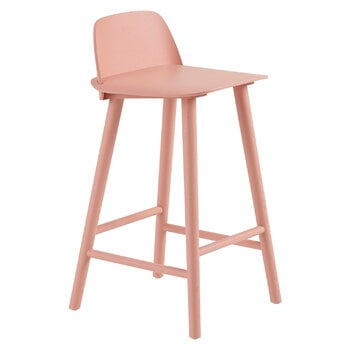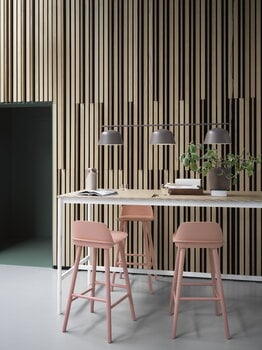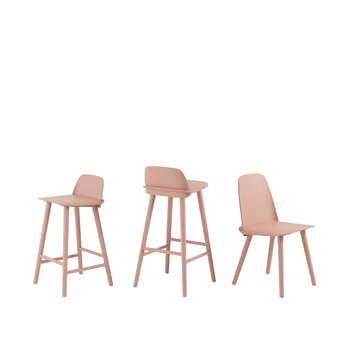Muuto's Nerd counter stool has a joyful and balanced appearance that exudes the basic values of Scandinavian design. Designed by David Geckeler, Nerd features an innovative structure between a low backrest and a wide seat that gives it an iconic character. The Nerd counter stool is available in several appealing colours.
In 2020 Muuto changed the chairs’ finish to a more environmentally-friendly, water-based lacquer. Please note that, as a result, the hue of the chairs is slightly different than before. At the same time, screws were added to the backrest for enhanced stability.








